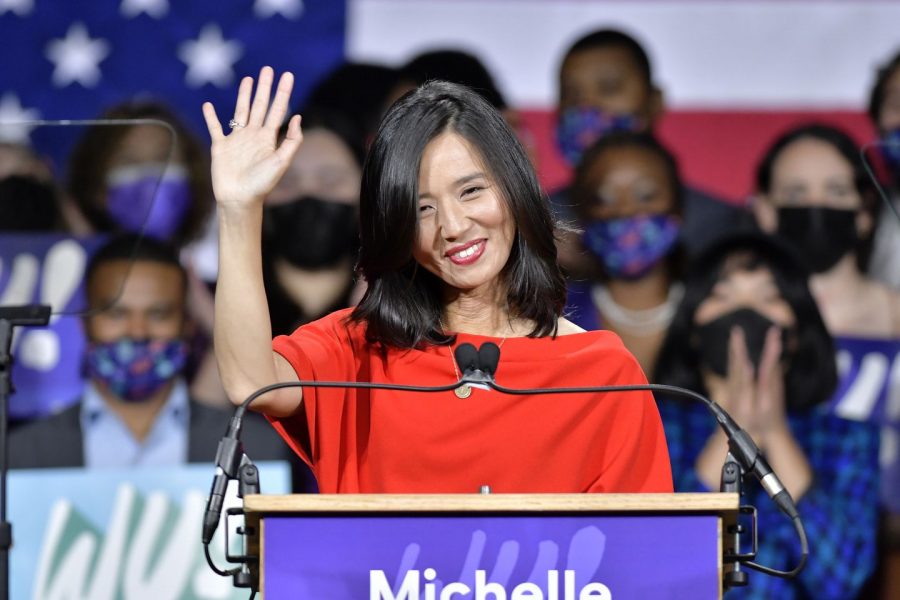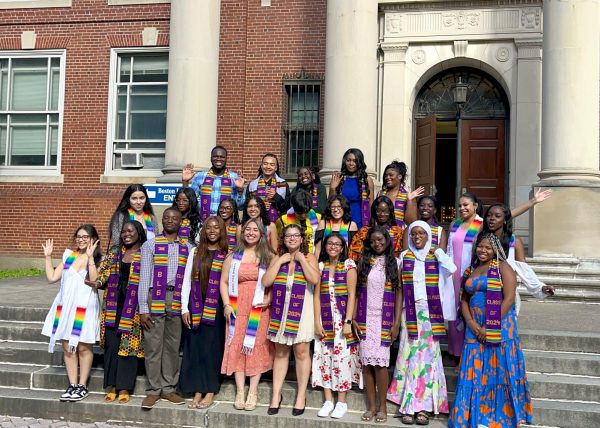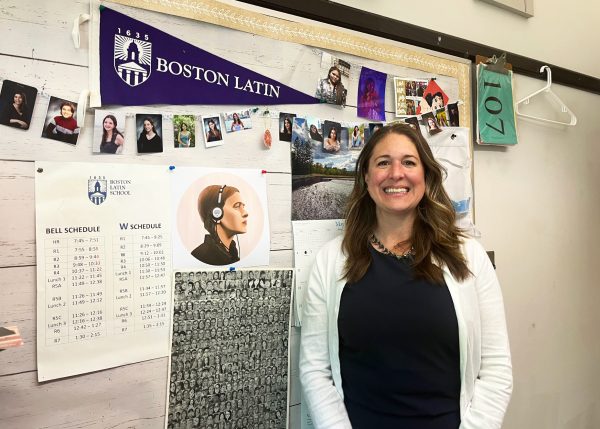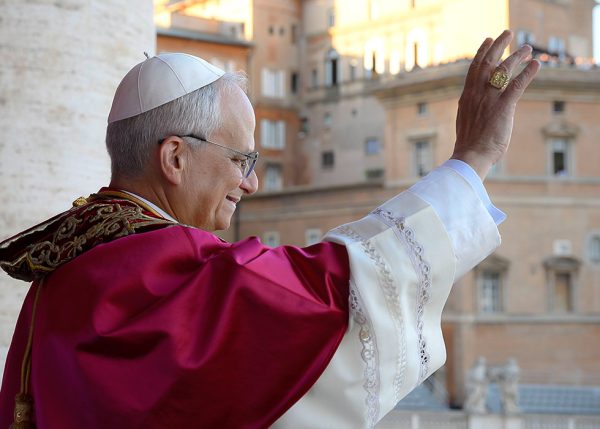Boston Boards the Wu Train
Mayor Michelle Wu speaks to supporters after winning the election.
On November 2, former City Councilor At-Large Mi- chelle Wu became the first wom- an and first Asian American to be elected mayor of Boston in a landslide victory, a major mile- stone in Boston’s 200-year may- oral history.
During the campaign season, Wu and fellow City Councilor At-Large Annissa Essaibi George debated on issues such as education reform, public transportation and economic development. Wu’s ambitious ideas included making the Massachusetts Bay Transportation Authority free and reimplementing city-mandated rent control. Essaibi George favored a more measured approach; she suggested exploring the addition of some fare-free buses in the city and investments in public housing.
Wu advocates for education equity, planning to reform the admissions process for Boston’s three exam schools as part of an effort to racial and socioeconomic disparities between exam schools and the rest of Boston Public Schools She supports the exam schools admission process used in 2021, which takes into account students’ zip codes and socioeconomic statuses as well as their entrance exam scores.
Another major part of Mayor Wu’s plan for Boston is her endorsement of climate justice policies. She intends to transition Boston to more environmentally friendly policies, aiming to reach citywide carbon neutrality by 2040. Her proposed “Boston Green New Deal” details her plan for decarbonization and climate adaptation in Boston.
Many of Wu’s votes came from precincts that previously supported former acting Mayor Kim Janey, who announced her support for Wu when she was eliminated from the race in the September primary election. Also eliminated in the primaries were City Councilor Andrea Campbell and former Boston Chief of Economic Development John Barros.
Although the voter turnout was relatively low in this election, as often happens in municipal elections, Boston Latin School students were engaged.
Ms. Meredith Elliott, an AP United States Government and Politics and AP Comparative Government teacher, says “This election, for a city election, had more interest. Whenever it’s an open seat, meaning either candidate could win, students tend to be more interested. Incumbency is a huge advantage in Boston elections, so if the incumbent is running again, there’s not as much suspense around it.”
Also on the November 2 ballot were three questions on changes surrounding Boston.
Question One asked if the City Council should have the power to make changes to city budget proposals, which are set forth by the mayor. With 68 percent in favor, it will also give the City Council the ability to request changes to the BPS budget and create an Office of Participatory Budgeting, where citizens will directly vote on how their taxes are being spent.
Two nonbinding questions gauged voters’ opinions on issues without guaranteeing outcomes. Question Two concerned the construction of an electrical substation in East Boston. 83 percent of voters were against the proposed project. Question Three asked whether members of the Boston School Committee should be elected, instead of being chosen by the mayor. 79 percent favored an elected Committee.
Mayor Wu took office on November 16, which left her with a transition period of under two weeks. This period was relatively short because the position was technically empty — Kim Janey had only been serving in an acting capacity since former Mayor Martin J. Walsh left the position to join President Joe Biden’s cabinet as Secretary of Labor.
Mayor Wu announced her official transition committee on November 9 to aid in her plans for the transition period and to help her during the first days of her term. Serving as honorary chair of the committee was former Acting Mayor Janey.
Wu has also appointed the first members of her cabinet, which includes Executive Director of the Boston Public Health Commission Dr. Bisola Ojikutu and Boston’s Chief of Housing and director of the Department of Neighborhood Development Sheila A. Dillon.
With the transition being set in place, Mary Harrington (II), co-president of BLS Women in Politics, comments, “This sets a major precedent. This is a huge thing and it’s great for the city […], but Boston still has so much racism ingrained in it and it’s important to keep looking forward.”
Thus, as she enters her first few months of office, Wu and her cabinet intend to take action on issues including climate change, COVID-19, substance use and homelessness with a focus on addressing the inequities that accompany them.
Jasmine Lee (I), External Liaison of BLS Asian Students in Action, says, “I feel proud of the city for electing a person like Wu. I think that her whole campaign was based on being a mayor not only for her own community, but for the whole city and everybody in the city.”






